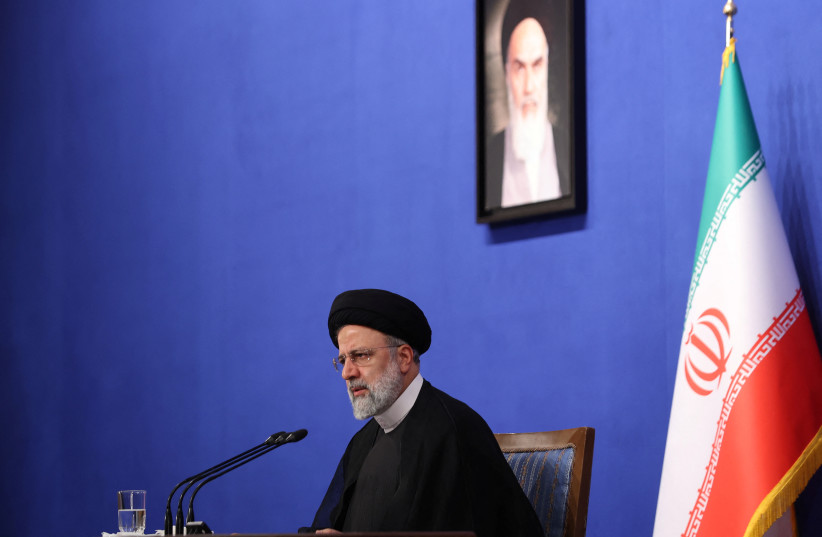“It is going to be extremely difficult” for the International Atomic Energy Agency to restore continuity of knowledge regarding the status of Iran’s nuclear program given that its inspectors’ access has been limited for several months, IAEA Director-General Rafael Grossi said Monday.
“We will have to work very, very hard, and Iran will have to be very transparent in giving us information accesses so we can put back a picture” of where the Islamic Republic’s nuclear program stands, he said at a press conference on the sidelines of the IAEA Board of Governors meeting, which started Monday and runs until the end of this week.
However, as long as the IAEA’s around 27 cameras are still shut off by Tehran, as they have been since June, “the information gap is getting bigger and bigger and bigger,” Grossi said.
Grossi: I hope Iran cooperates with IAEA as soon as possible
To get a real handle on the status of Iran’s nuclear program, he said, “We would also need to determine the comprehensiveness and accuracy of data recorded by our surveillance equipment between 21 February 2021 and 8 June 2022.”
“Even then, considerable challenges would remain in order to confirm the consistency with the situation prior to 21 February 2021 of Iran’s declared inventory of centrifuges and heavy water,” he added.
Grossi was questioned about Iran’s accusations that because the IAEA has kept certain probes open regarding illicit nuclear material its inspectors found, he must be biased against it.

Grossi ridiculed that notion.“It is not new to see that when the agency is demanding certain things, and Iran doesn’t want to or does not engage in the way one would expect, that they accuse us of being politicizing,” he said.
“This issue is very straightforward. We found traces of uranium that were never declared that were in places that were never supposed to have nuclear activity. We are asking questions. Explain to me how this is political,” he said with obvious frustration.
“I really hope Iran will start cooperating with us as soon as possible. We just want this issue to be clarified. I really hope that they will start looking into this issue in a different way.”
There was no mention from Grossi, nor so far from the IAEA Board, of any new action against Iran, such as referring it to the UN Security Council.
In fact, most of the press conference was focused on the nuclear crisis in Ukraine.
Earlier Monday, Iran said it was ready to continue cooperating with the UN nuclear watchdog, while revealing a drone capable of hitting major cities in Israel. In return, Israel has threatened to attack Iranian nuclear sites if diplomacy fails to save a 2015 nuclear pact.
Speaking after European powers expressed frustration with Tehran’s failure to move clearly to salvage the agreement, Iranian Foreign Ministry spokesman Nasser Kanaani urged the IAEA “not to yield to Israel’s pressure” over Tehran’s nuclear activities.
The IAEA’s Board of Governors was meeting on Monday, three months after adopting a resolution urging Iran to give credible answers to the agency’s investigations into uranium traces at three sites in Iran. Grossi has said Iran repeatedly refuses to give credible answers since it was caught with illicit nuclear material.
E3 express 'serious doubt' over Iran nuclear deal
On Saturday, France, Britain and Germany said they had "serious doubts" about Iran's intentions to revive a deal curbing its nuclear program in return for a lifting of sanctions, comments that were rejected by Tehran and called "very untimely" by Moscow.
"Iran announces its constructive cooperation with the agency as its obligation...While Iran has obligations, it also has rights," Kanaani told a televised news conference.
"Naturally, Iran expects constructive actions from IAEA and the members of its governing board"
Iranian Foreign Ministry spokesman Nasser Kanaani
After 16 months of indirect talks between Tehran and Washington, European Union foreign policy chief Josep Borrell said on August 8 that the bloc had laid down a final offer to overcome an impasse for the revival of the agreement.
Earlier this month, Iran sent its latest response to the EU's proposed text. Western diplomats said it was a step backward, with Tehran seeking to link a revival of the deal with the closure of IAEA investigations into the uranium traces.
Reuters contributed to this story.
